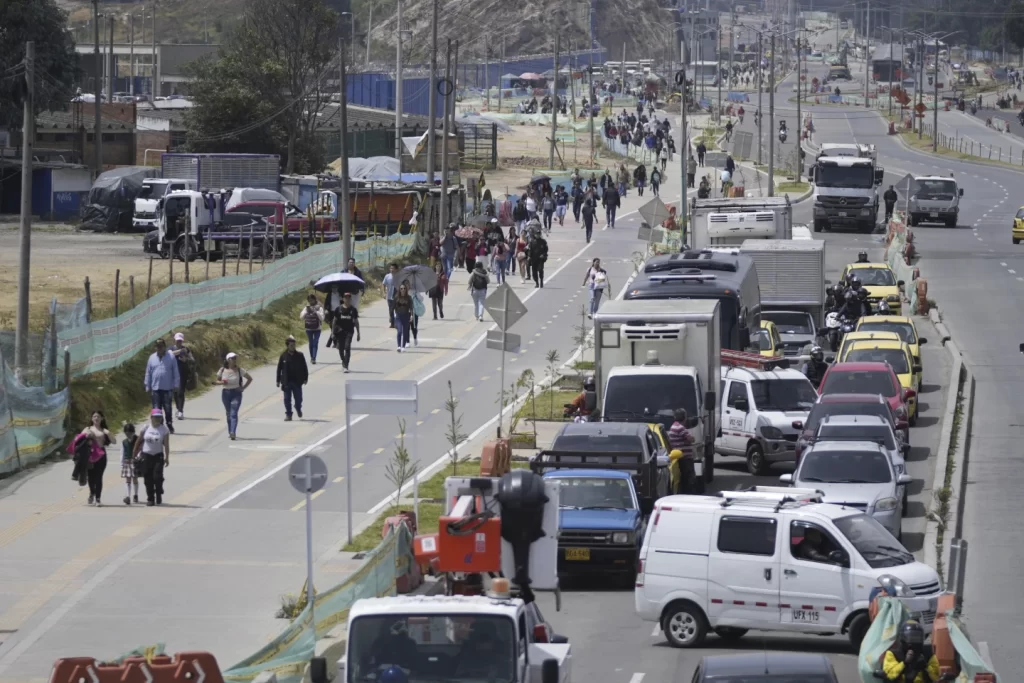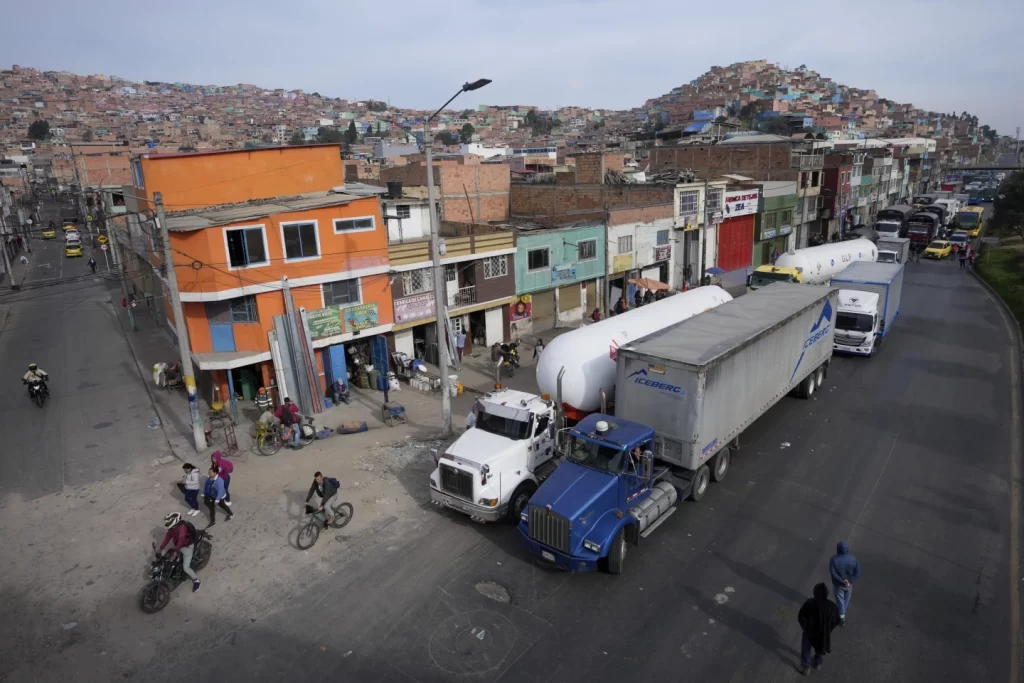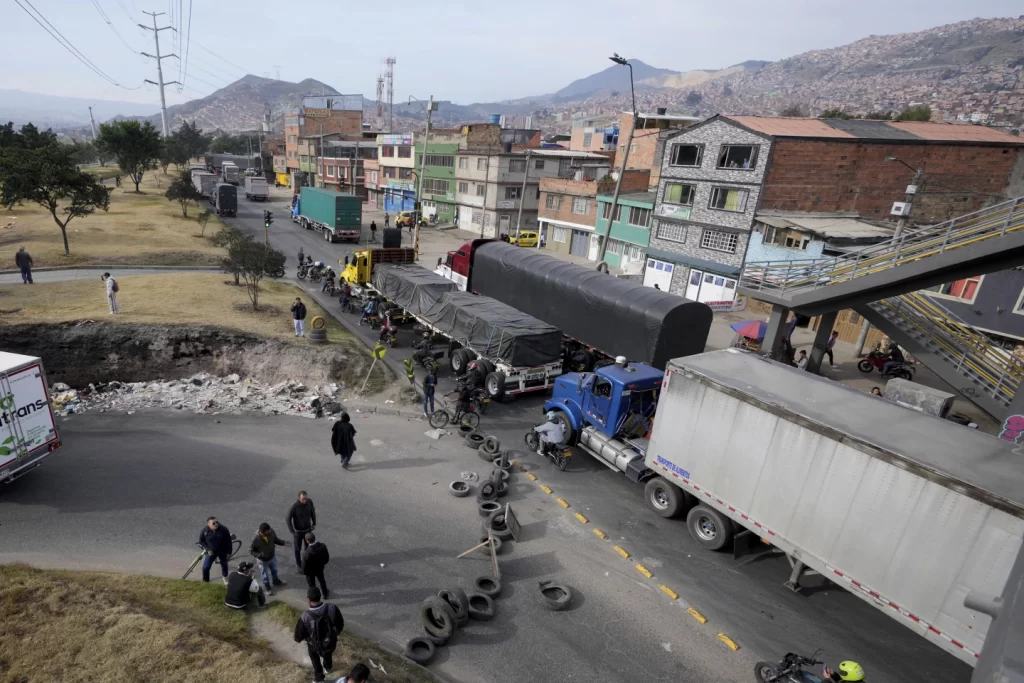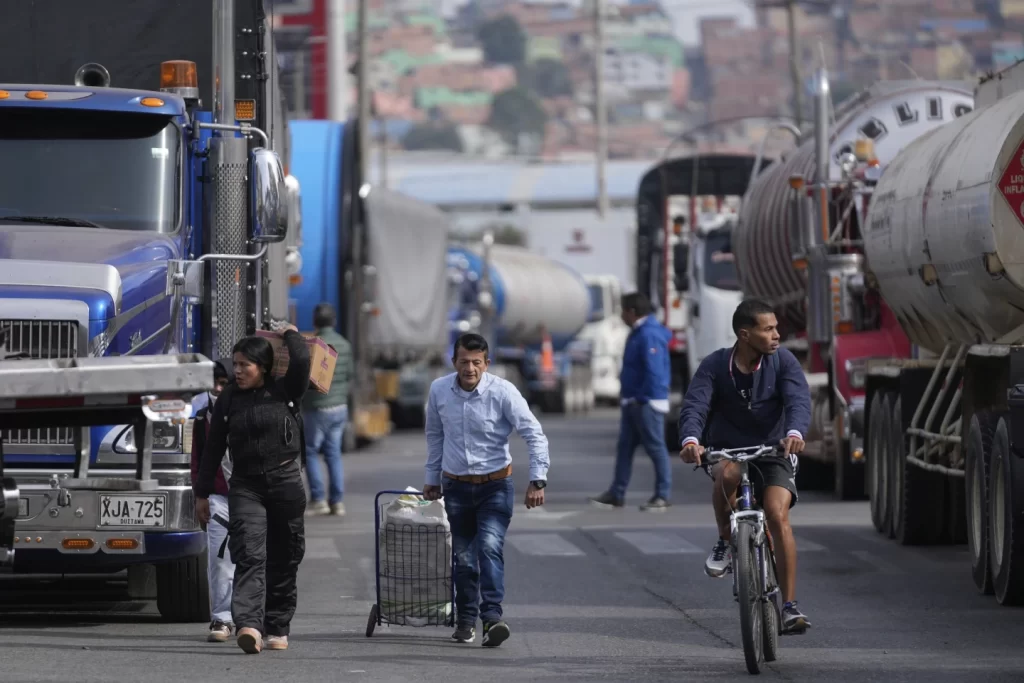Thousands of Colombians were forced to walk to work on Tuesday as truckers blocked major highways in Bogotá, Medellin, and Cali to protest a recent increase in diesel fuel prices.

The government raised diesel prices to approximately $2.90 per gallon on Saturday, a 50-cent increase, following numerous meetings with truckers unions. This move is part of a plan to phase out fuel subsidies, which the administration of President Gustavo Petro says is necessary to reduce the budget deficit and redirect funds to education and health.
Truckers unions argue that eliminating diesel subsidies will push their businesses towards bankruptcy. Diego Torres, a brick transporter in Bogotá, stated that the new fuel prices would cause him to lose money on every load of construction material he carries.

“I am willing to stay at this protest for a day or two days or three,” Torres said, “because we are tired” of the difficult conditions.
The roadblocks have significantly reduced food deliveries to wholesale markets in major cities. President Petro, writing on social media platform X, declared he would not allow truckers unions to “block” the country. He emphasized that fuel subsidies must be removed to “reduce public debt” and “finance the health and education of Colombians.”

According to Colombia’s Finance Ministry, diesel fuel subsidies cost the government approximately $240 million each month, paid to the state oil company Ecopetrol. The government plans to remove these subsidies in three stages to allow transport companies to adjust to the price increases.
Some economists have suggested that Ecopetrol sell diesel fuel at a lower price within Colombia, but this would significantly impact the company’s margins and affect its shareholders, as Ecopetrol is listed on the New York Stock Exchange.

The fuel subsidy debate coincides with the Finance Ministry’s preparation of a tax reform plan aimed at raising government revenues by $3 billion next year. The plan includes increasing wealth taxes, taxes on non-wage personal income, and sales taxes on hybrid cars and online betting.
During President Petro’s first two years in office, the government’s annual budget has increased by about 30% as he seeks to boost social welfare programs and expand the public sector workforce.
The government has expressed willingness to meet with truckers unions to discuss ways of compensating them for higher operational costs, but maintains that the subsidy reduction is necessary for the country’s fiscal health.



